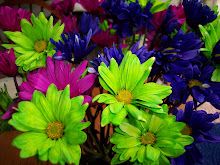There are always a couple of students who don't read the directions carefully (or don't understand them) and say that the most difficult thing for them to give up would be their families. But of those who do the exercise properly, I get a wide range of answers, from cell phone and iPod (very popular answers) to music, clothing (other than basic) and even housing. Many students take this exercise very seriously, particularly in my online classes where we have lots of discussion.
This spring I determined that in order to bring more tranquility to our home (a major goal of mine this summer), I needed to let go of a great many of our material possessions. All of us except Z are packrats, and the clutter has gotten so bad that I just can't stand it any longer. Fortunately, I have Goodwill, Re-cycle, and Freecycle to donate to, and they have already taken many things off my hands.
But you know, it's not just a house that can become cluttered. And that's where Hugh Prather comes in. (You can click on the title of the post to learn a bit more about him - I'd never heard of him till I picked up the book, but apparently he's quite well known.) I picked up the book for $4 on remainder at Barnes & Noble, after looking through it a bit, and it was money well spent.
Prather may be a Methodist minister, but he's obviously studied Buddhist psychology. This wise little book (whose misleading tagline, A Revolutionary 30-Day Program Blah Blah Blah, was most likely added by an editor, since it doesn't really fit the book) offers a kind of mental dejunking that I found both helpful and comfortable. It's written in a chatty, conversational style, too - easy to read when one is up worrying in the middle of the night.
And worry, not incidentally, is one of the topics the book covers extremely well. I've struggled with worry for decades, probably as a result of taking everything on my own shoulders. I've known at an intellectual level just how pointless it is to worry, just how much energy it drains, and how much happier I would be if I spent less time doing it - but none of that has helped me let it go.
Prather breaks worrying down into bite-sized pieces so that one can examine them easily, comfortably and rationally (imagine looking at your fears rationally!). After each bite, he gives an exercise, which he calls a "release" (because it enables you to let something go). Some of these are more helpful than others. Most of the releases he suggests should take 1-2 days; I found that spending a day pondering the discussion itself as I went about my daily business was usually more fruitful than doing the actual releases, but to each her own.
I learned several things from this book, but the absolute most valuable thing I took from it was the understanding that most of my worrying came from my attempts to control people or situations. Letting go of that control-impulse makes the worry just melt away. You're probably nodding and thinking, "FINALLY she's figured that out!" So I'm a slow learner. Here's my favorite sentence in the book:
"The next time you think there is some situation you can control, try doing it when you have diarrhea."
Come to think of it, that applies pretty well to dealing with small children, too.
I'll leave you with one last quotation, rather long, in which he discusses his relationship with his wife. I think I would like these people:
"Thirty-five years later we have three wonderful sons. We have five wonderful pets. This is our fifteenth book. We serve a church that did not ordain us. We live in a city that can get above 115 degrees in the summer. And in the last four nights, we have killed ninety-three adult scorpions in a tight circle around our house. (We don't talk about what happened to their babies.)"
In other news this evening, here is a mandala I colored after supper, from Julie Keefe's Mandala Mondays:
 And here is Z's homework assignment for her drawing class. The perspective looks a little odd because she was looking down into a mirror, but if you think of her from that angle, it's a good likeness. I was amazed at how fast she dashed it off, too!
And here is Z's homework assignment for her drawing class. The perspective looks a little odd because she was looking down into a mirror, but if you think of her from that angle, it's a good likeness. I was amazed at how fast she dashed it off, too! ~Namaste
~Namaste


No comments:
Post a Comment